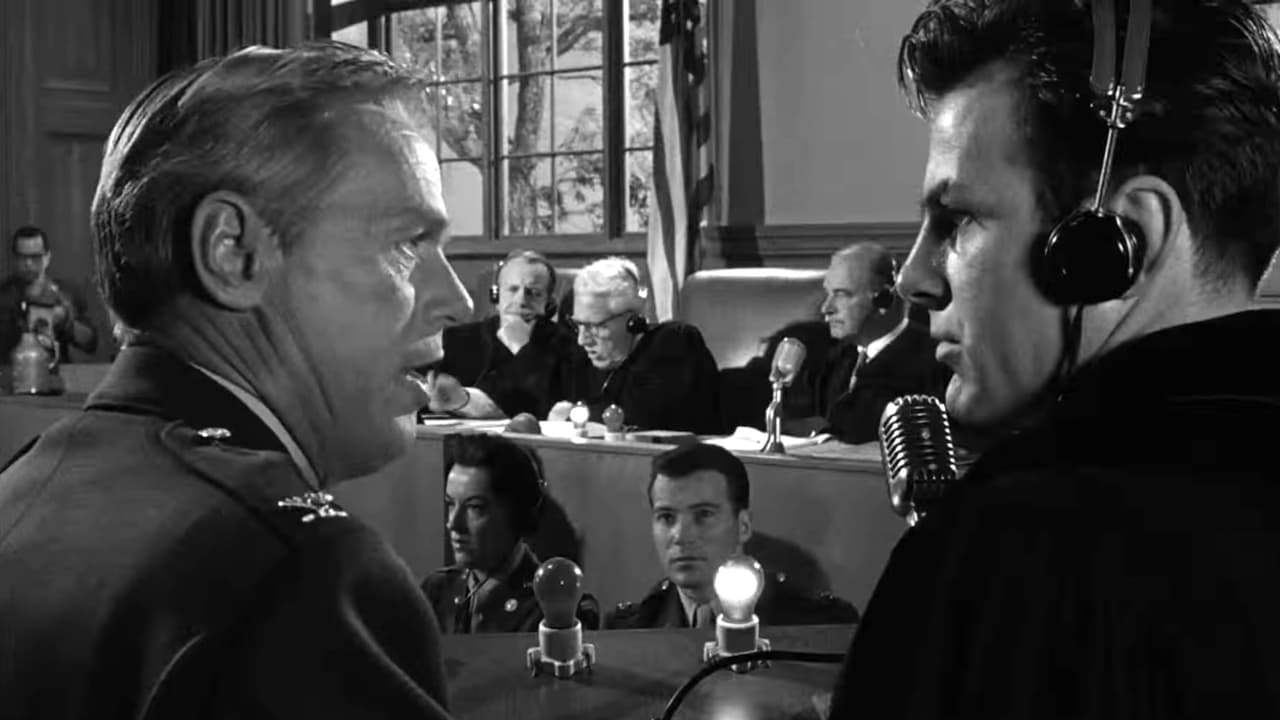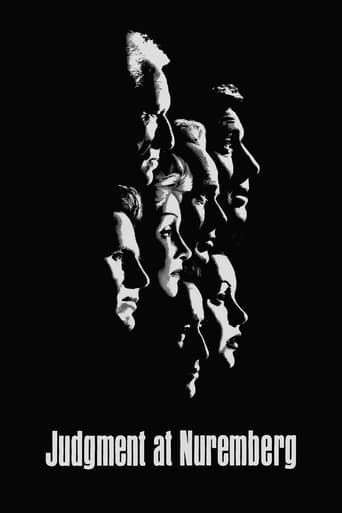

In 1948, an American court in occupied Germany tries four Nazi judges for war crimes. The biggest problem with 'Judgment at Nuremberg' is that it takes completely place inside a court room and as fun as that might sound it really isn't and just picture 'A Few Good Men' inside there for 3 hours now it wouldn't be the epic film that it turned out to be now would it? The acting was alright and so was the cinematography and direction but other than that? It was way long and just needed alot of scenes to cut out like fifty of them maybe even more. (5/10)
... View MoreJudgement At NurembergDespite of its overlong runtime, there is a lot of material in it to feed off the audience for more than 3 hours. Abby Mann's adaptation might be the only strongest link in this feature excluding Stanley Kramer; it is a bit loose on depicting the intensity and the emotions behind all the drama and the editing too seems liberal (they could have narrowed it down to around 2 hours). On performance level, it holds up the expectation and delivers without flinching by great actors like Spencer Tracy, Maximilian Schell and Montgomery Clift. Judgement At Nuremberg remains true to its nature and loyal to the tone of the feature till the last frame which possibly is the only reason to encounter this experience for it lacks gripping screenplay, better editing and execution of a scene.
... View MoreJudicial drama based on Abby Mann's novel directed by Stanley Kramer with a cast full of well-known names. Winner of 2 Oscars: best plot and best lead actor for Maximilian Schell. In 1948, an American court in occupied Germany tries four judges of the Nazi regime for war crimes. The message of the film helps to weigh the circumstances of the human side and the consequences of the Nazi regime, but with the duration of 3 hours, after a while it becomes tedious. On the other hand the performances are very good and all are delivered with vigor to their characters, which always helps to maintain interest. The strong points of this movie are the performances and the speeches and dialogues. I recognize the importance of this film in the historical and cinematic context, but I also think there are other films and media about this same theme that are much more appealing, with more emotional load and also with a humanistic message.
... View MoreJudgment at Nuremberg centers on a military tribunal convened in Nuremberg, Germany, in which four German judges and prosecutors stand accused of crimes against humanity for their involvement in atrocities committed under the Nazi regime. Judge Dan Haywood (Spencer Tracy) is the Chief Trial Judge of a three-judge panel that will hear and decide the case against the defendants. Haywood begins his examination by trying to learn how the defendant Ernst Janning (Burt Lancaster) could have sentenced so many people to death. Janning, it is revealed, is a well- educated and internationally respected jurist and legal scholar. Haywood seeks to understand how the German people could have turned blind eyes and deaf ears to the crimes of the Nazi regime. In doing so, he befriends the widow (Marlene Dietrich) of a German general who had been executed by the Allies. He talks with a number of Germans who have different perspectives on the war. Other characters the judge meets are US Army Captain Byers (William Shatner), who is assigned to the American party hearing the cases, and Irene Hoffman (Judy Garland), who is afraid to provide testimony that may bolster the prosecution's case against the judges.
... View More